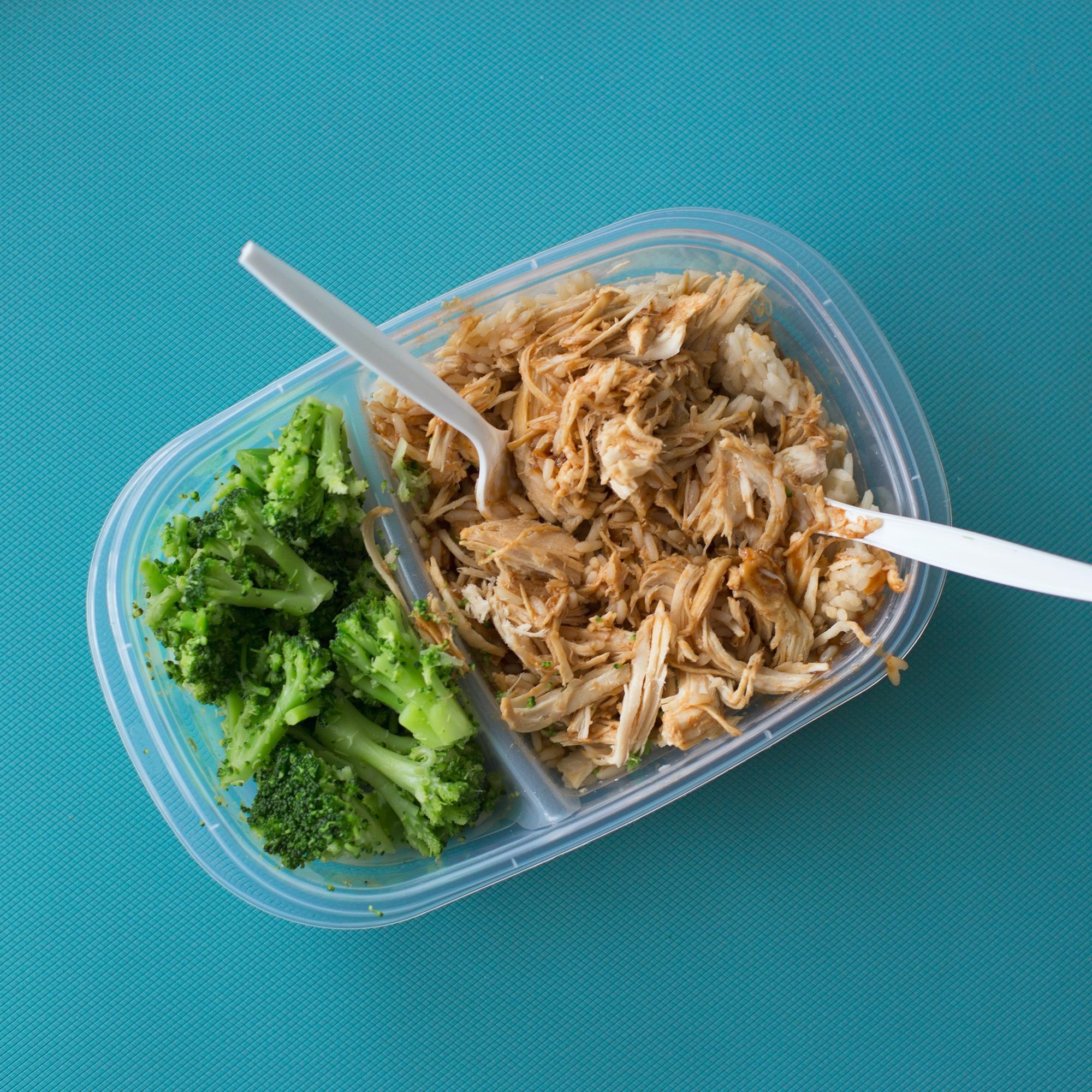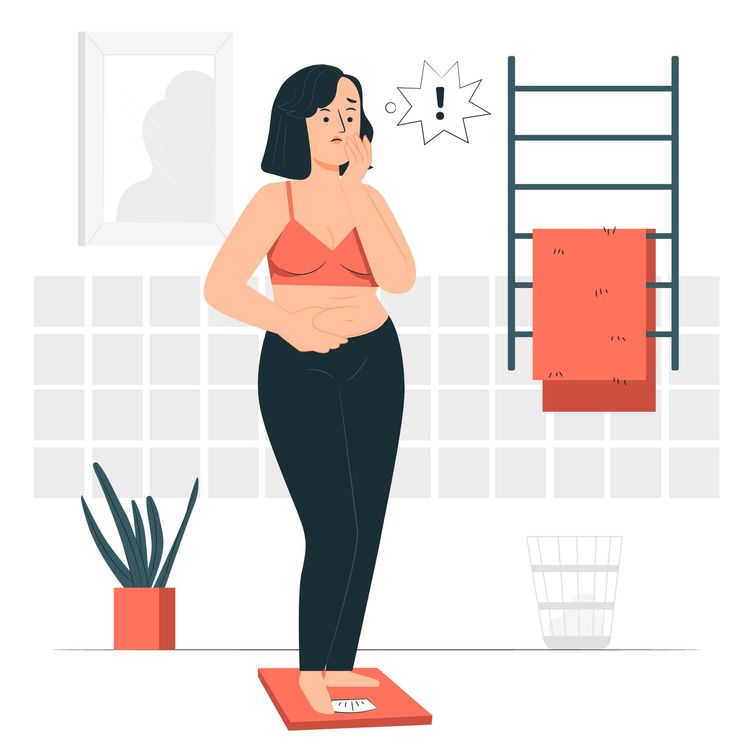The true cost of six pack abs

The first time I dieted for weight loss, I motivated myself by imagining how I great would look and feel after losing 15 lbs. Not only would I achieve the insanely aesthetic physique of the fitness trainers I looked up to, but it would be accompanied by an abundance of confidence and joy. In short, I equated leanness with happiness, and I decided that I was willing to go the distance to acquire both.
Initially, I did indeed experience many of the positive changes that I had anticipated. I felt satisfaction in having a goal to chase, I saw more muscle tone in the mirror, I fit into my clothes better, and I was generally more energized throughout the day.

But then, things started taking a turn for the worse. What began as occasional attempts to make healthier choices gradually transformed into an unhealthy obsession. I started with the innocent lifestyle changes of cooking at home more and increasing my vegetable intake. But this slowly escalated into a fixation on meticulously weighing and measuring every morsel of food. I became consumed with the need to obtain precise amounts of protein, fat and carbs in my diet daily.
Dining out, which was previously a highlight of my weekends, became a major source of anxiety. I was petrified to even step foot into a restaurant, because I couldn't know the exact ingredients and macronutrient breakdown of any meals that I didn't prepare myself.
Thoughts of food occupied more and more of my mental space. As I restricted the types and quantities of food allowed in my diet, my hunger and cravings intensified. I developed an unhealthy preoccupation with food. When I wasn't eating, I found myself constantly thinking about my next meal or vicariously living through others by watching food-related content online.

From an outsider's perspective, there was no doubt that my body looked better than it ever had before. I was slim, toned, and athletic, just as I had hoped. For the first time in my life, compliments on my appearance rolled in from friends and strangers. The external validation was gratifying enough that I was willing to overlook the toll that dieting was taking on my well-being.
In reality, I had been under-eating and over-exercising for many months and there were severe consequences on the other side. My mental energy and focus suffered, negatively impacting my performance at work. I withdrew from social interactions, avoiding tempting situations involving food and alcohol. Irritability, mood swings, and strained relationships became the norm. Even basic tasks like taking out the trash felt overwhelming due to my depleted energy levels.
Moreover, my body eventually reached a point of resistance. No matter how I controlled my food intake, I experienced bloating, inflammation, and physical discomfort. The scale refused to budge, leaving me frustrated and miserable. I questioned the worth of my painstaking efforts—endless hours of exercise and meager, monotonous meals of chicken and broccoli—only to maintain my body weight and feel utterly awful.
When I finally accepted that I needed to stop the diet, I looked back and wondered, "Was it all worth it?"

It's not wrong to pursue weight loss, but it takes care not to overdo it.
I want to be clear that I'm not discouraging the pursuit of weight loss. Achieving a healthy body weight and leaner body composition is a positive and worthwhile pursuit for many individuals who are seeking to improve their overall health.
Since my initial attempt, I've educated myself about the science of dieting and its interactions with physical and mental health. After learning to approach weight loss in a more informed and sustainable way, I have undergone several successful cycles to lose excess fat and now feel better physically, mentally, and emotionally than I ever have. The key has been employing strategies that prioritize balance and sustainability.
We have to remember that your health can't be summed up by your external appearance. Importantly, health also involves cultivating body positivity, self acceptance, and mental well-being. Weight loss can be achieved thoughtfully by embracing a holistic view of health and honoring your true thoughts and feelings throughout the process.

The honest truth about being too lean
Now, one of the hardest pills to swallow is that your ideal body aesthetic may not align with the body in which you feel your best. Time and time again, our media and culture have promoted the standard of being ripped and having a six pack. But realistically, few people can sustain this look without sacrificing internal health.

Getting too lean, especially at the extreme levels shown by celebrities, fitness models, and bodybuilders, can result in seriously detrimental consequences to health. Just a few of these consequences are:
- Hormonal imbalances: Low body fat levels can disrupt the delicate balance of hormones in the body. In men, it can lead to decreased testosterone levels, resulting in reduced libido, infertility, and muscle loss. Women may experience disruptions in their menstrual cycle, which in turn contribute to bone loss.
- Metabolic slowdown: Prolonged periods of caloric restriction can cause adaptations that slow down metabolism. As a reaction to low energy availability, the body does whatever it can to conserve energy and hold on to every calorie consumed. This effect can persist for months after returning to maintenance calories, increasing the chances of rebound weight gain.
- Muscle loss: When the body isn't provided enough energy in food, it resorts to breaking down muscle for energy. This results in muscle loss, weakness, and decreased physical performance. It can also compromise the body's ability to recover from exercise, leading to higher risk of injury.
- Psychological distress: Constant focus on body appearance, strict dietary rules, and intense exercise regimens form a fast track to disordered eating patterns, body dysmorphia, anxiety, depression, and a distorted relationship with food and self-image. The pressure to maintain a level of leanness beyond what your body is comfortable with is extremely draining and negatively impacts psychological well-being.
In summary, weight loss can produce immensely positive changes, but it comes with many risks and responsibilities that are often overlooked. It's critical to understand and mitigate the potentially negative impacts of any diet and exercise protocol. Achieving an ideal body aesthetic should not overshadow the importance of feeling your best and maintaining a healthy relationship with food, exercise, and yourself. Keep your eyes open for signs that you may have taken a diet too far, and consider seeking professional support in finding a sustainable and personalized approach to reaching your goals.


